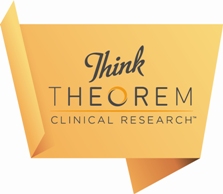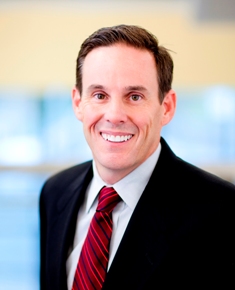|
Theorem Clinical Research (Private) |
||
|
September 10, 2012 Issue |
||
|
The Most Powerful Name In Corporate News and Information |
||
CURRENT ISSUE | COVER ARCHIVES | INDEX | CONTACT | FINANCIALS | SERVICES | HOME PAGE |
||
|
Providing Support to Pharmaceutical, Biotech and Medical Device Companies, Theorem Clinical Research is Stronger in Asia Pacific than Any Other Mid-Tier CRO and is Competitive with the Top Ten Global CROs in Asia |
||
|
Theorem Clinical Research is
one of the foremost providers of comprehensive CRO services with offices in
more than 30 countries and a customer base comprised of some of the world’s
leading pharmaceutical, biotech and medical device companies. Theorem
combines Phase I–IV solutions with specialized therapeutics expertise to
execute perfectly aligned trials. Supporting business units include Clinical
Development, Clinical Supplies, Clinical Analytics, Biopharmaceutical,
Medical Device and Clinical Combination Studies. |
|
|
|
Interview conducted by: Lynn Fosse, Senior Editor, CEOCFO Magazine, Published – September 10, 2012
Dr. Potthoff: The focus of Theorem Clinical Research is to service our clients in three different markets, one being in the biopharmaceutical development market, and the second is medical device and diagnostics. The final is as technology partner for functional service provider services in clinical analytics. We focused the company into three distinct markets to better partner with our customers.
Dr. Potthoff: Right now, the makeup of Theorem Clinical Research is fairly balanced. About a third of our business falls into each of those categories. The fastest growing areas are medical device & diagnostics, and clinical analytics. Within medical device and diagnostics, we are seeing many combination products that are both therapeutics combined with technology as well as companion diagnostics. As far as the future mix of the company, we would also continue to see those areas as dominant parts of our overall portfolio.
Dr. Potthoff: Theorem Clinical Research is the new CRO with a 27-year history. We were spun Omnicare in April in 2010. Because Omnicare is a multibillion-dollar corporation, they got to keep their name. We came up with a new name Theorem Clinical Research, which was the result of an employee contest to name the new company. At the time, Omnicare was branding and operating the CRO as a generalist CRO focused in on any number of things without focus or differentiation. Over the past year, as a global mid-market CRO, we decided to take advantage of our focus and organize the company and our messaging around those core focus areas. That has given us the ability to demonstrate our differentiation from other CROs. It is much easier now for our employees to explain how Theorem is different from other CROs.
Dr. Potthoff: It is competitive! We reach people through traditional business development efforts. We support this with our current marketing campaign called “Think Theorem” where we demonstrate to our clients why they should think of Theorem for the development needs. We also have begun an effort called “Theorem Thinks” where we take our in-house experts and their various disciplines and showcase them at meetings, in publications and at other venues. One of our leaders, Dr. Lee Spurgin, has a guide for medical device trials now available on Amazon.com. Because of the unique attributes of Theorem, many customers seek us out directly as well.
Dr. Potthoff: Yes, we have full coverage in North America, South America, Europe and especially in Asia Pacific. About a third of our employees are in each of those geographies. We are stronger in Asia Pacific than any other mid-tier CRO and we are competitive with the top ten global CROs in Asia. Right now, our focus is in building out into some of the areas throughout Eastern Europe where we need for scale. We just recently opened a data hub in Ukraine, which will give us additional access to talent for biostatistics and programming, and, to provide lower cost options in Europe for our customers.
Dr. Potthoff: Yes and no. When you look at the overall approach of clinical trials, especially as a global company with global SOPs, you have a common base of execution no matter where you operate. The actual effort that is required to execute can vary from region to region. For example, in the US and in Europe, the market is much more mature and has a longer history such that sites have more infrastructure around executing clinical trials with tenured coordinators and processes. In Asia, CRAs are much more involved in helping sites understand what they need to do. A CRA in Asia spends a lot more time working directly with the investigator, with more time onsite and more conversations and calls guiding sites through the steps of the trial. Also, some regulatory and startup procedures vary wildly from country to country. But, when you really break it all down, trial execution is much more similar than different geographically.
Dr. Potthoff: One of the services we are building in our medical device area is global strength for reimbursement consultation. There is a great deal of effort earlier in product development for devices around reimbursement consulting and strategy. Right now, we do this through partner companies that specialize in various areas of reimbursement. As we grow and continue to build areas of focus within our own capacity, I would like to have that technology or knowledge in-house. Also, we are continually bringing in and utilizing new technology, which is exciting. Technology is changing, and it is moving away from enterprise style to more flexible use. We are able to surround a project with enabling technology rather than trying to force projects into enterprise systems than can be constraining and cumbersome to Customers.
Dr. Potthoff: Once in while there is a lack of comfort with new technology and a desire to cautiously step into it, which is understandable. We see no hesitancy in using electronic data capture or electronic patient reported outcomes, those are proven models that clients no longer question.
Dr. Potthoff: There are a number of ways that we try to keep abreast of what is going on in our industry. One is encouraging our staff to maintain their focus in areas of expertise. Having focused areas, our staff keep track of what is happening in the journals, with their customers, and, in the industry as a whole. As a CRO, we work with hundreds of different customers in a particular year, so we are gaining knowledge every day. As a community, I think CROs and industry together have become better at partnering to work on common issues. One of the groups organizing such an effort is Avoca who have developed a consortium of CROs and pharmaceutical companies to look at the finding and implementing standard metrics for measuring the quality of execution in clinical trials. There are new technologies and new processes that are starting to be applied to the drug development industry that are still novel and will bring exciting changes to our industry. There are many conversations every day around how we make our industry better. It is not an easy task.
Dr. Potthoff: Now that we have defined markets, we are growing organically and reinforcing our services in the near-term. As we look long-term, we believe that the markets that we are entering, especially on the medical device side and then on the clinical analytic side, are two of the areas that are growing faster than the overall industry. This will continue to be a major part of our business and a major differentiation for our business. We will continue to bring in new technologies and applications and expertise, possibly through targeted acquisitions.
Dr. Potthoff: Overall, as the economy declined during the last few years, it put more pressure on our customers to do two things simultaneously. One was to rationalize their portfolios, which slowed R&D spending. This led to CRO consolidation and a shifting of staff from sponsor to CROs. For the first time, we are now seeing pharmaceutical companies downsizing their scientific staff and see those people moving from pharma and biotech over to the CRO side of the business. The economy has changed the landscape, CROs consolidating as well as benefiting from the transfer of knowledge and people from pharma/biotech to CROs.
Dr. Potthoff:
People should pay attention to Theorem Clinical Research today because it is
a great example of the focus and the dynamic changes that are happening in
response to the dynamic healthcare development environment. There are areas
where we have focused our company to benefit from the new trends in
healthcare. I think that our success will come from that focus and from the
increasing intersection of technology and therapeutics. We are one of the
very few companies which have really understood and focused to benefit from
this change. That is one reason why I think people should keep their eye on
Theorem. |
||
|
We are stronger in Asia Pacific than any other mid-tier CRO and we are competitive with the top ten global CROs in Asia. - John Potthoff, Ph.D. |
||
|
|
||
|
|
||

